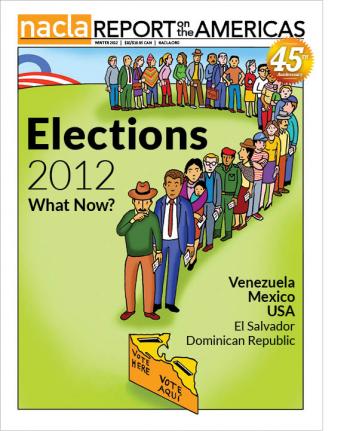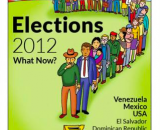Report
In an interview, the prominent Venezuelan activist and sociologist talks to NACLA about why she keeps a critical distance from both Chavismo and the opposition.
These photos were taken in Santa Elena de Uairen, on Venezuela’s southeastern border with Brazil. This region is home to some of the largest communities of Pemón indigenous people in the nation. Polls were set up even in the most far-flung communities, with international witnesses present. Chávez won by substantial margins in almost all of them.
An informal group of Venezuelan intellectuals have been expressing the fear that Chávez’s “hyper-leadership” may be threatening the gains of Chávez’s own Bolivarian Revolution.
The Chavista emphasis on elections, and in winning them by large majorities, has its roots in a number of factors, including the desire to give legitimacy to Venezuela’s transition to “socialism of the 21st Century.”
For the first time, Dominicans living abroad have been able to elect candidates of their own to serve in the Dominican Chamber of Deputies.
Despite last year’s mayoral losses, the FMLN remains El Salvador’s leading political force, holding the presidency, 31 seats in the National Assembly, and governing 96 municipalities.
The contrast between manipulative politicking in the author’s home state of Pennsylvania and the openness of the electoral process she witnessed in Venezuela is striking.
The recent coups in Honduras and Paraguay reveal the built-in limits of the electoral path to social transformation.
Whether voters liked it or not, a vote for Obama was a vote for the status quo on immigration policy. It was a vote for the current Democrat-Republican consensus on immigration reform.
The Mexican elections of 2012 sent a disheartening signal of defeat to the country’s working population. Regressive labor-law reform is now on the horizon.
Mexican elections have not been known for their transparency. Last July’s election that returned the PRI to the presidency was no exception. A significant part of the politically active public has yet to recognize the official result.
With dual citizenship now a possibility, many Mexican Americans have taken an active interest in Mexican elections.
At the very least, we can hope that Obama, in his second term, will show greater tolerance for the debate on drug-policy alternatives that has blossomed across Latin America.


